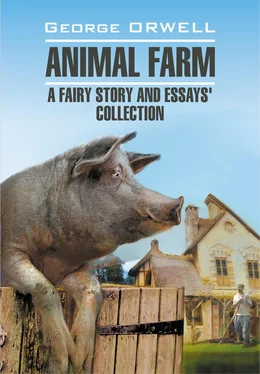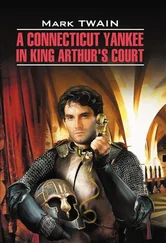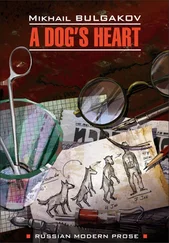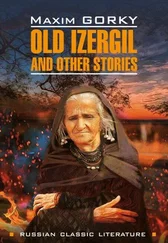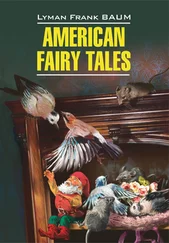These terrors wore off, or became merely intermittent, without affecting what one might call my official beliefs. It was still true about the madhouse and the suicide’s grave, but it was no longer acutely frightening. Some months later it happened that I once again saw Horne, the ringleader who had been flogged and expelled. Horne was one of the outcasts, the son of poor middle-class parents, which was no doubt part of the reason why Sambo had handled him so roughly. The term after his expulsion he went on to Eastbourne College, the small local public school, which was hideously despised at St Cyprian’s and looked on as ‘not really’ a public school at all. Only a very few boys from St Cyprian’s went there, and Sambo always spoke of them with a sort of contemptuous pity. You had no chance if you went to a school like that: at the best your destiny would be a clerkship. I thought of Horne as a person who at thirteen had already forfeited all hope of any decent future. Physically, morally and socially he was finished. Moreover I assumed that his parents had only sent him to Eastbourne College because after his disgrace no ‘good’ school would have him.
During the following term, when we were out for a walk, we passed Horne in the street. He looked completely normal. He was a strongly-built, rather good-looking boy with black hair. I immediately noticed that he looked better than when I had last seen him – his complexion, previously rather pale, was pinker – and that he did not seem embarrassed at meeting us. Apparently he was not ashamed either of having been expelled, or of being at Eastbourne College. If one could gather anything from the way he looked at us as we filed past, it was that he was glad to have escaped from St Cyprian’s. But the encounter made very little impression on me. I drew no inference from the fact that Horne, ruined in body and soul, appeared to be happy and in good health. I still believed in the sexual mythology that had been taught me by Sambo and Flip. The mysterious, terrible dangers were still there. Any morning the black rings might appear round your eyes and you would know that you too were among the lost ones. Only it no longer seemed to matter very much. These contradictions can exist easily in the mind of a child, because of its own vitality. It accepts – how can it do otherwise? – the nonsense that its elders tell it, but its youthful body, and the sweetness of the physical world, tell it another story. It was the same with Hell, which up to the age of about fourteen I officially believed in. Almost certainly Hell existed, and there were occasions when a vivid sermon could scare you into fits. But somehow it never lasted. The fire that waited for you was real fire, it would hurt in the same way as when you burnt your finger, and for ever , but most of the time you could contemplate it without bothering.
The various codes which were presented to you at St Cyprian’s – religious, moral, social and intellectual – contradicted one another if you worked out their implications. The essential conflict was between the tradition of nineteenth-century asceticism and the actually existing luxury and snobbery of the pre-1914 age. On the one side were low-church Bible Christianity, sex puritanism, insistence on hard work, respect for academic distinction, disapproval of self-indulgence: on the other, contempt for ‘braininess’, and worship of games, contempt for foreigners and the working class, an almost neurotic dread of poverty, and, above all, the assumption not only that money and privilege are the things that matter, but that it is better to inherit them than to have to work for them. Broadly, you were bidden to be at once a Christian and a social success, which is impossible. At the time I did not perceive that the various ideals which were set before us cancelled out. I merely saw that they were all, or nearly all, unattainable, so far as I was concerned, since they all depended not only on what you did but on what you were .
Very early, at the age of only ten or eleven, I reached the conclusion – no one told me this, but on the other hand I did not simply make it up out of my own head: somehow it was in the air I breathed – that you were no good unless you had £100,000. I had perhaps fixed on this particular sum as a result of reading Thackeray. The interest on £100,000 would be £4,000 a year (I was in favour of a safe 4 per cent), and this seemed to me the minimum income that you must possess if you were to belong to the real top crust, the people in the country houses. But it was clear that I could never find my way into that paradise, to which you did not really belong unless you were born into it. You could only make money, if at all by a mysterious operation called ‘going to the city’, and when you came out of the City, having won your £100,000, you were fat and old. But the truly enviable thing about the top-notchers was that they were rich while young. For people like me, the ambitious middle class, the examination-passers, only a bleak, laborious kind of success was possible. You clambered upwards on a ladder of scholarships into the Civil Service or the Indian Civil Service, or possibly you became a barrister. And if at any point you ‘slacked’ or ‘went off’ and missed one of the rungs in the ladder, you became ‘a little office boy at forty pounds a year’. But even if you climbed to the highest niche that was open to you, you could still only be an underling, a hanger-on of the people who really counted.
Even if I had not learned this from Sambo and Flip, I would have learned it from other boys. Looking back, it is astonishing how intimately, intelligently snobbish we all were, how knowledgeable about names and addresses, how swift to detect small differences in accents and manners and the cut of clothes. There were some boys who seemed to drip money from their pores even in the bleak misery of the middle of a winter term. At the beginning and end of the term, especially, there was naively snobbish chatter about Switzerland, and Scotland with its ghillies and grouse moors, and ‘my uncle’s yacht’, and ‘our place in the country’. And ‘my pony’ and ‘my pater’s touring car’. There never was, I suppose, in the history of the world a time when the sheer vulgar fatness of wealth, without any kind of aristocratic elegance to redeem it, was so obtrusive as in those years before 1914. It was the age when crazy millionaires in curly top-hats and lavender waistcoats gave champagne parties in rococo houseboats on the Thames, the age of diabolo and hobble skirts, the age of the ‘knut’ in his grey bowler and cut-away coat, the age of The Merry Widow , Saki’s novels, Peter Pan and Where the Rainbow Ends , the age when people talked about chocs and cigs and ripping and topping and heavenly, when they went for divvy week-ends at Brighton and had scrumptious teas at the Troc. From the whole decade before 1914 there seems to breathe forth a smell of the more vulgar, un-grown-up kind of luxury, a smell of brilliantine and crème-de-menthe [19] crème-de-menthe – (фр.) мятный ликер
and soft-centred chocolates – an atmosphere, as it were, of eating everlasting strawberry ices on green lawns to the tune of the Eton Boating Song. The extraordinary thing was the way in which everyone took it for granted that his oozing, bulging wealth of the English upper and upper-middle classes would last for ever, and was part of the order of things. After 1918 it was never quite the same again. Snobbishness and expensive habits came back, certainly, but they were self-conscious and on the defensive. Before the war the worship of money was entirely unreflecting and untroubled by any pang of conscience. The goodness of money was as unmistakable as the goodness of health or beauty, and a glittering car, a title or a horde of servants was mixed up in people’s minds with the idea of actual moral virtue.
Читать дальше
Конец ознакомительного отрывка
Купить книгу
